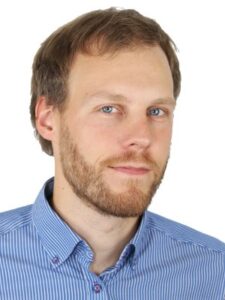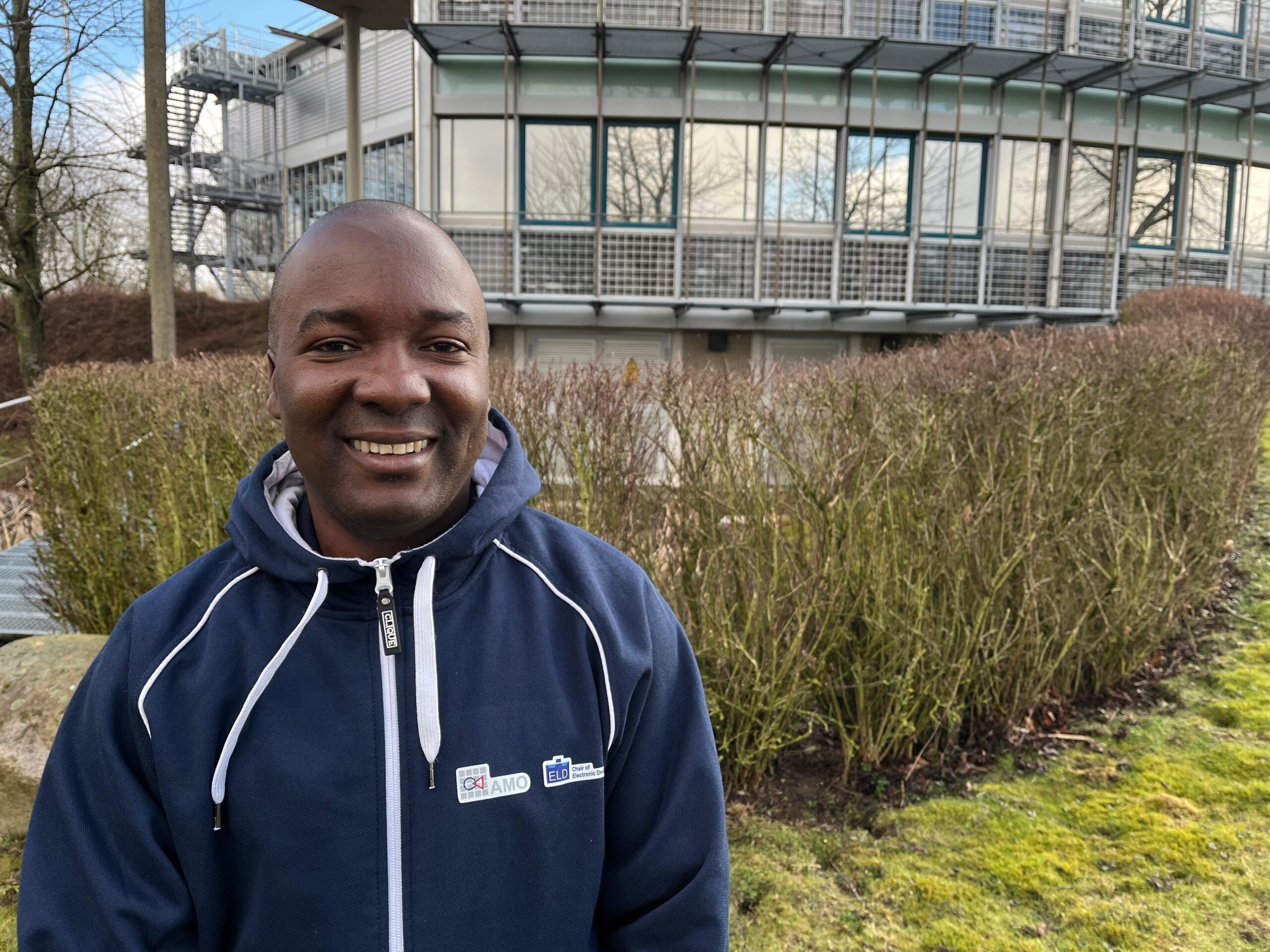Schlagwort: ‘Stipendium’
Daimler and Benz grant for research into innovative blood pressure measurement technology

© MedIT
Markus Lüken was awarded a scholarship for the year 2025 by the Daimler and Benz Foundation for his research work on monitoring blood pressure fluctuations with inconspicuous sensors.
After studying electrical engineering and information technology at RWTH Aachen University, Markus Lüken completed his doctorate at the Chair of Medical Information Technology (MedIT) with a thesis on the inconspicuous monitoring of gait stability in Parkinson’s patients. Lüken is currently head of the Biomedical Measurement Technology and Signal Processing working group at MedIT. His research focuses on non-invasive sensor systems and machine learning for medical diagnostics. In his current project, he aims to develop a non-invasive, patient-friendly way of monitoring blood pressure in everyday clinical practice, in order to provide the best possible assessment of the patient’s condition.
According to the foundation’s website: ‘Fluctuations in blood pressure and especially high blood pressure can have serious health consequences, but often go undetected.’
In accordance with this relevance, the young scientist is developing an inconspicuous sensor system that is integrated into the patient’s bed and serves to continuously monitor blood pressure trends without the aid of the conventional cuff. By combining multimodal, innovative and non-detectable measurement methods, parameters are collected that allow conclusions to be drawn about the development of blood pressure.
The Daimler and Benz Foundation has set itself the objective of strengthening the autonomy of the next generation of scientists and of supporting the academic careers of young and committed scientists after their doctorates, irrespective of their disciplines.
Further information on the 2025 scholarship holders is available on the official website of the Daimler and Benz Foundation.
Scholarship holder develops protective helmets made of snail shells

© Judith Peschges
Bayode Adeyanju from Nigeria is developing innovative protective helmets at the Chair of Electronic Devices (ELD) that combine natural and artificial materials.
In February of this year, the scientist arrived at the Chair of Electronic Devices at RWTH Aachen University, having been awarded a scholarship from the German Academic Exchange Service (DAAD). Until May, he will be conducting research under Professor Max Lemme’s supervision, with the objective of developing stable helmets that optimally absorb shocks and offer particularly good protection. For the purposes of his research, Adeyanju is combining artificial Kevlar fibres with natural snail shell nanoparticles. In the context of Nigeria, where snail shells are commonly viewed as a nuisance and a potential environmental concern, their high calcium content renders them of interest for materials research. The scientist crushed both materials and ground them finely. The substance was then combined with epoxy resin, and subsequently filled into a mould, where it underwent a process of hardening. Subsequent tests were then conducted to ascertain the impact resistance, hardness and density of the helmets. The combination of the favourable properties of the two base materials forms the basis for the production of high-performance protective helmets.
In his study, Adeyanju presents the results of his research, which indicates that the combination of natural and artificial materials enables the development of innovative protective materials. At RWTH, the scholarship holder utilises state-of-the-art research facilities and equipment to characterise selected materials. Such studies would not be possible at his home university in Nigeria.
‘Knowledge is power,’ says Adeyanju, adding: ‘RWTH has everything it takes to change the world.’
The first thing he noticed in Aachen was how the streets became quieter in the early evening as people went home, says Bayode Adeyanju. This is very different from his home country of Nigeria, where he is used to having friends and family over. Even though Aachen is quieter in the evenings than Nigeria, Adeyanju felt welcome from the start of his research stay. AMO GmbH, a non-profit research organisation, is also contributing to this by supporting his four-month stay. And after one month at RWTH Aachen, Bayode Adeyanju is sure that he would like to come back and continue his cooperation with the Chair of Electronic Devices (ELD).
‘I have received a great deal of support from my colleagues at the ELD and at AMO, as well as from the students, and I feel very happy here,’ says the scientist.
Adeyanju decided to apply to the DAAD two years ago and was accepted last year. The German Academic Exchange Service is a prominent funding organisation that facilitates international student and academic exchange. Funded by German universities and student bodies, the organisation aims to prepare future specialists and managers to act responsibly and to create lasting connections worldwide. This objective is pursued by fostering professional and cultural networks among scholarship holders. Since its foundation in 1925, the DAAD has sponsored more than 2.9 million young academics in Germany and abroad. It is institutionally supported by the Federal Foreign Office.
With its motto ‘Change by Exchange’, the DAAD emphasises the importance of international understanding and cooperation. Another of the organisation’s central concerns is to support developing countries in establishing efficient universities, thus contributing to social, economic and political development.
Mr. Hoog Antink, PhD. is the new member of Junges Kolleg NRW
Dr.-Ing. Christoph Hoog Antink began studying electrical engineering and information technology at RWTH Aachen University in 2005. In 2018, he received his doctorate as Dr.-Ing. at the Chair of Medical Information Technology and has since then been head of the Medical Signal Processing group as a senior engineer.
As one of 7 new scholarship holders of the Junges Kolleg, he will receive an annual grant of 10,000 Euro for a period of four years. Furthermore, he participates in the life of the Academy, which enables him to discuss his projects in interdisciplinary working groups and to exchange ideas with renowned members of the Academy. In order to be appointed to the Junges Kolleg, scientists and scholars of all disciplines and artists must have already made outstanding scientific achievements in addition to their doctorate and not yet hold a permanent university teaching position. Furthermore, members must not be older than 36 years at the time of admission.
Dr. Hoog Antink has described his field of research and his intentions as follows:
“I am researching signal and data processing in medical technology. I use a wide variety of signal sources, from one-dimensional modalities such as ECG and blood pressure curves to multidimensional video data. I am interested in how robustness can be increased by intelligently combining information from different sources. In practice, sensor fusion can be used to reduce false alarms in intensive care units. Another field of research is the development of contactless measurement technology. Contactless measurement data are often more susceptible to interference and offer special optimization potential through sensor fusion. Vital parameters can be determined contactless using several cameras, whose data are analyzed using current machine learning methods. Here I use cooperation with neonatology and geriatric medicine to increase comfort and freedom of movement for both patient groups and to minimize skin damage and the risk of infection”.




